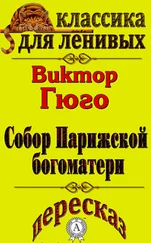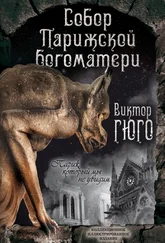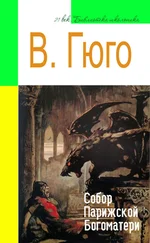| Every attempt at perfecting is an impiety to them. |
Всякое усовершенствование для них -святотатство. |
| In these architectures it seems as though the rigidity of the dogma had spread over the stone like a sort of second petrifaction. |
Суровость догматов, застыв на камне созданных ею памятников, казалось, подвергла их вторичному окаменению. |
| The general characteristics of popular masonry, on the contrary, are progress, originality, opulence, perpetual movement. |
Напротив, характерные особенности построек народного зодчества - разнообразие, прогресс, самобытность, пышность, непрестанное движение. |
| They are already sufficiently detached from religion to think of their beauty, to take care of it, to correct without relaxation their parure of statues or arabesques. |
Здания уже настолько отрешились от религии, что могут заботиться о своей красоте, лелеять ее и непрестанно облагораживать свой убор из арабесок или изваяний. |
| They are of the age. |
Они от мира. |
| They have something human, which they mingle incessantly with the divine symbol under which they still produce. |
Они таят в себе элемент человеческого, непрестанно примешиваемый ими к божественному символу, во имя которого они продолжают еще воздвигаться. |
| Hence, edifices comprehensible to every soul, to every intelligence, to every imagination, symbolical still, but as easy to understand as nature. |
Вот почему эти здания доступны каждой душе, каждому уму, каждому воображению. Они еще символичны, но уже доступны пониманию, как сама природа. |
| Between theocratic architecture and this there is the difference that lies between a sacred language and a vulgar language, between hieroglyphics and art, between Solomon and Phidias. |
Между зодчеством теократическим и народным такое же различие, как между языком жрецов и разговорной речью, между иероглифом и искусством, между Соломоном и Фидием. |
| If the reader will sum up what we have hitherto briefly, very briefly, indicated, neglecting a thousand proofs and also a thousand objections of detail, he will be led to this: that architecture was, down to the fifteenth century, the chief register of humanity; that in that interval not a thought which is in any degree complicated made its appearance in the world, which has not been worked into an edifice; that every popular idea, and every religious law, has had its monumental records; that the human race has, in short, had no important thought which it has not written in stone. |
Если мы вкратце повторим то, что лишь в общих чертах, опуская множество доказательств и неважных возражений, мы говорили выше, то придем к следующему заключению. До XV столетия зодчество было главной летописью человечества; за этот промежуток времени во всем мире не возникало ни одной хоть сколько-нибудь сложной мысли, которая не выразила бы себя в здании; каждая общедоступная идея, как и каждый религиозный закон, имела свой памятник; все значительное, о чем размышлял род человеческий, он запечатлел в камне. |
| And why? |
Почему? |
| Because every thought, either philosophical or religious, is interested in perpetuating itself; because the idea which has moved one generation wishes to move others also, and leave a trace. |
Потому что всякая идея, будь то идея религиозная или философская, стремится увековечить себя; иначе говоря, всколыхнув одно поколение, она хочет всколыхнуть и другие и оставить по себе след. |
| Now, what a precarious immortality is that of the manuscript! |
И как ненадежно это бессмертие, доверенное рукописи! |
| How much more solid, durable, unyielding, is a book of stone! |
А вот здание - это уже книга прочная, долговечная и выносливая! |
| In order to destroy the written word, a torch and a Turk are sufficient. |
Для уничтожения слова, написанного на бумаге, достаточно факела или варвара. |
| To demolish the constructed word, a social revolution, a terrestrial revolution are required. |
Для разрушения слова, высеченного из камня, необходим общественный переворот или возмущение стихий. |
| The barbarians passed over the Coliseum; the deluge, perhaps, passed over the Pyramids. |
Орды варваров пронеслись над Колизеем, волны потопа, быть может, бушевали над пирамидами. |
| In the fifteenth century everything changes. |
В XV столетии все изменяется. |
| Human thought discovers a mode of perpetuating itself, not only more durable and more resisting than architecture, but still more simple and easy. |
Человеческая мысль находит способ увековечить себя, не только обещающий более длительное и устойчивое существование, нежели зодчество, но также и более простой и легкий. |
| Architecture is dethroned. |
Зодчество развенчано. |
| Gutenberg's letters of lead are about to supersede Orpheus's letters of stone. |
Каменные буквы Орфея заменяются свинцовыми буквами Гуттенберга. Книга убьет здание. |
| The invention of printing is the greatest event in history. |
Изобретение книгопечатания - величайшее историческое событие. |
| It is the mother of revolution. |
В нем зародыш всех революций. |
| It is the mode of expression of humanity which is totally renewed; it is human thought stripping off one form and donning another; it is the complete and definitive change of skin of that symbolical serpent which since the days of Adam has represented intelligence. |
Оно является совершенно новым средством выражения человеческой мысли; мышление облекается в новую форму, отбросив старую. Это означает, что тот символический змий, который со времен Адама олицетворял разум, окончательно и бесповоротно сменил кожу. |
| In its printed form, thought is more imperishable than ever; it is volatile, irresistible, indestructible. |
В виде печатного слова мысль стала долговечной, как никогда: она крылата, неуловима, неистребима. |
| It is mingled with the air. |
Она сливается с воздухом. |
| In the days of architecture it made a mountain of itself, and took powerful possession of a century and a place. |
Во времена зодчества мысль превращалась в каменную громаду и властно завладевала определенным веком и определенным пространством. |
| Now it converts itself into a flock of birds, scatters itself to the four winds, and occupies all points of air and space at once. |
Ныне же она превращается в стаю птиц, разлетающихся на все четыре стороны, и занимает все точки во времени и в пространстве. |
| We repeat, who does not perceive that in this form it is far more indelible? |
Повторяем: мысль, таким образом, становится почти неизгладимой. |
| It was solid, it has become alive. |
Утратив прочность, она приобрела живучесть. |
| It passes from duration in time to immortality. |
Долговечность она сменяет на бессмертие. |
| One can demolish a mass; how can one extirpate ubiquity? |
Разрушить можно любую массу, но как искоренить то, что вездесуще? |

![Виктор Гюго - Собор Парижской Богоматери [Notre-Dame de Paris]](/books/30985/viktor-gyugo-sobor-parizhskoj-bogomateri-notre-thumb.webp)

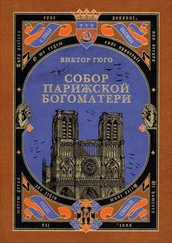
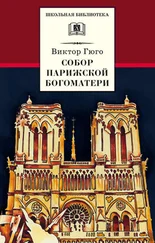
![Виктор Гюго - Собор Парижской Богоматери. Париж [сборник]](/books/398980/viktor-gyugo-sobor-parizhskoj-bogomateri-parizh-sbo-thumb.webp)
